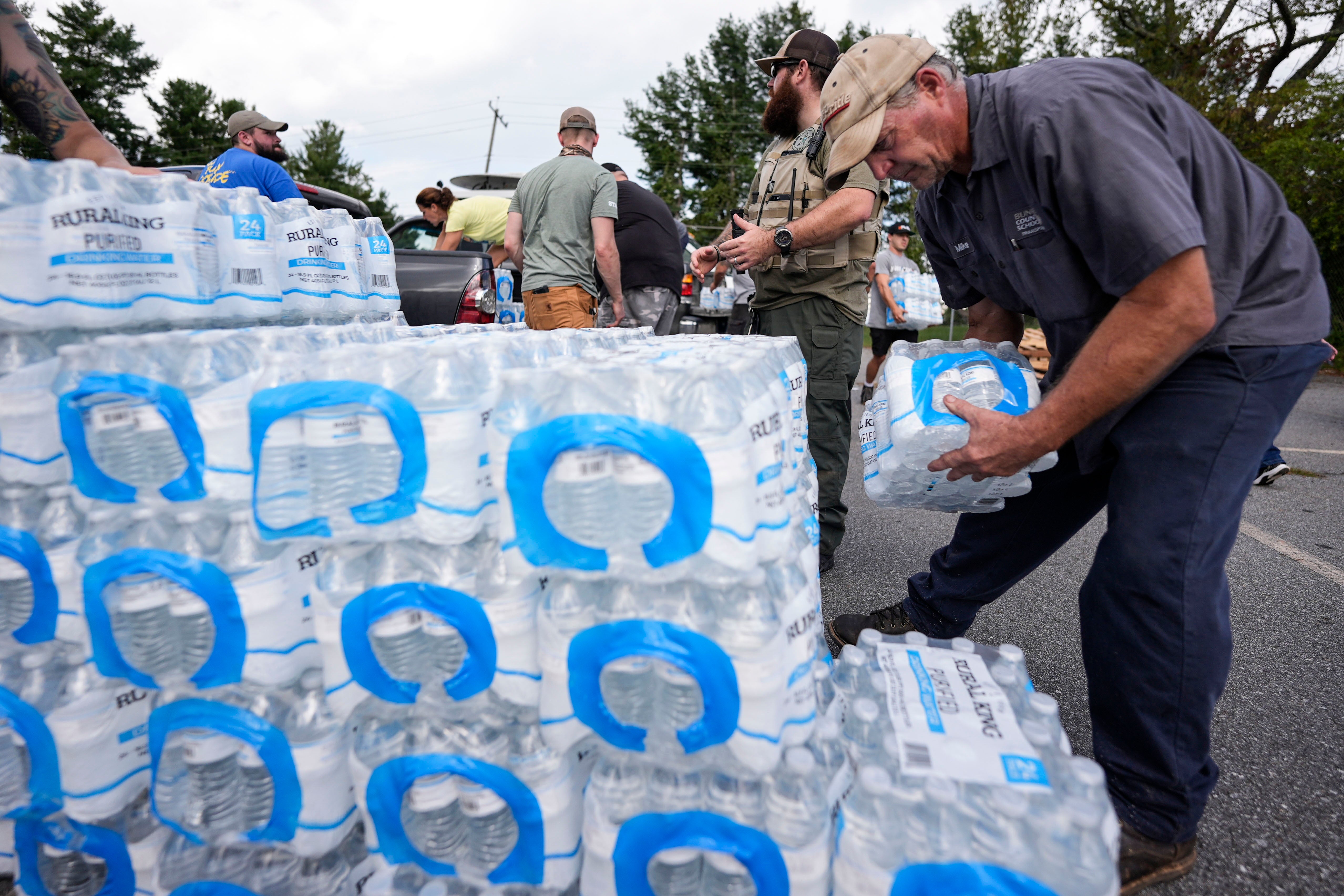
Your support helps us to tell the story
This election is still a dead heat, according to most polls. In a fight with such wafer-thin margins, we need reporters on the ground talking to the people Trump and Harris are courting. Your support allows us to keep sending journalists to the story.
The Independent is trusted by 27 million Americans from across the entire political spectrum every month. Unlike many other quality news outlets, we choose not to lock you out of our reporting and analysis with paywalls. But quality journalism must still be paid for.
Help us keep bring these critical stories to light. Your support makes all the difference.
It’s been more than two weeks since Hurricane Helene tore across North Carolina, but tens of thousands remain without running water in the western part of the state, and it could reportedly be weeks or months until the system is fully back online.
The storm burst water pipes, flooded the reservoirs with dirt and sediment, and destroyed water lines at key nodes like the North Fork water treatment facility.
In Asheville, one of the epicenters of the destruction, county officials have said that between 90,000 and 100,000 were without water, more than half of the city’s water system.
There, Helene even destroyed backup water lines serving the city that were buried 25 feet underground.
There’s so much dirt and sediment in the system that even those who do have running water are being encouraged to flush their pipes for 15 minutes, then boil and strain water meant for drinking.
Crews are working 24 hours a day to repair the region’s water infrastructure, and North Carolina Governor Roy Cooper signed an executive order Tuesday to further expedite the repairs, as the U.S. Army Corps of Engineers has been called in to assess water systems, wastewater plants, and dams across the state.
In the meantime, local officials and volunteers have been organizing to get residents access to water.
The city of Asheville is running multiple Community Care Stations with portable showers, laundries, portable toilets and other conveniences.

Volunteer groups, meanwhile, have deployed pumping systems to filter creek water, and have physically transported tanks of clean well water to areas without access.
“People came out with their pots and pans, kids were coming out with gallon jugs, whatever they could find,” Simon Eaton, a volunteer with the group Flush AVL, told The Washington Post.
The group has deployed roughly 300 containers of non-potable water in retirement communities and low-income neighborhoods across Asheville, rigged with QR codes to allow residents to alert volunteers when more water is needed.
“It has forced this kind of sharing economy,” he added. “I’m really impressed how many nonprofits and little aid groups and people willing to pitch in there are in this city.”
Water coming back on has meant a slight step towards comfort and normalcy for some within Asheville.
Melinda Vetro, owner of the Old Europe Pastries bakery in downtown Asheville, saw her water return on Monday.
“We are survivors, that’s how I feel about it,” she told WLOS. “We’ve been giving out croissants for 18 days and coffee to just cheer people up.”
The water crisis in the state has impacted other key areas like housing and education.
Renters say they’ve been pressured to continue paying the rent, even though Helene flood waters left their residences uninhabitable, moldy and a lack of water means they’ve been unable to clean.
“I explained to (my landlord) that the house is unlivable because we have no running water, no electricity, and no one will be living since we had lost these basic necessities,” a childcare worker who rents near UNC Asheville told Carolina Public Press.
Schools in the region have also reportedly been exploring whether they can re-open without running water, using portable bathroom trailers and drilling wells to supply schools with basic services.







